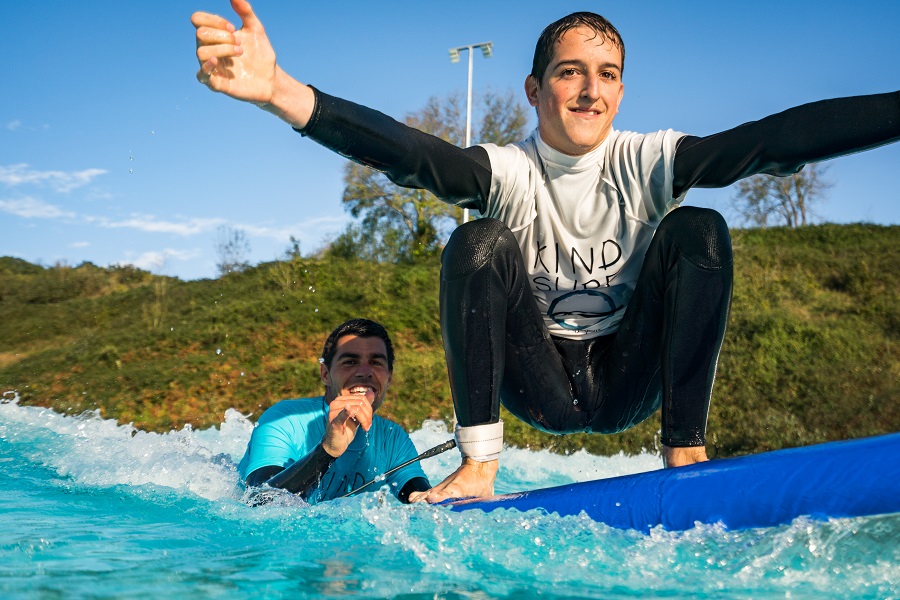
Basque pro surfer Aritz Aranburu is a big believer in the therapeutic effects of surfing. He has been riding waves since he was four years old and explains that it has kept him fit and healthy all his life. Back in 2012 he partnered with Almudena Fernandez and some close friends to create ‘Kind Surf’, a non-profit organization dedicated to taking disadvantaged kids and young adults surfing.
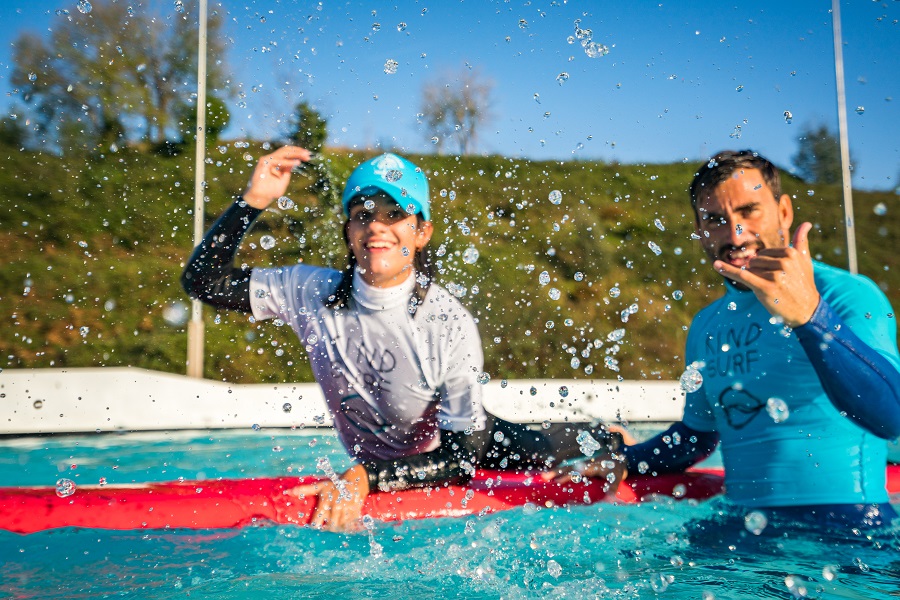
“Getting the kids into the water and on to waves has a super positive effect on their outlook, it’s a form of therapy” explained Aritz. “We organise sessions at my surf school in Zarautz twice a week. As soon as they get in the water, their faces light up with huge smiles”.

To the excitement of the “Kind Surfers”, Aritz teamed up with the crew at Wavegarden in the Basque Country to organize a surprise surf session at their private demo center. “When they saw the first waves roll through, they didn’t ask how it was possible to have waves breaking amongst the mountains. They just ran into the water,” said Aritz. Over the course of the next hour, Aritz and his team of volunteers pushed the surfers into about 8-12 waves each, three to four times more waves than they would catch in the ocean in the same period.
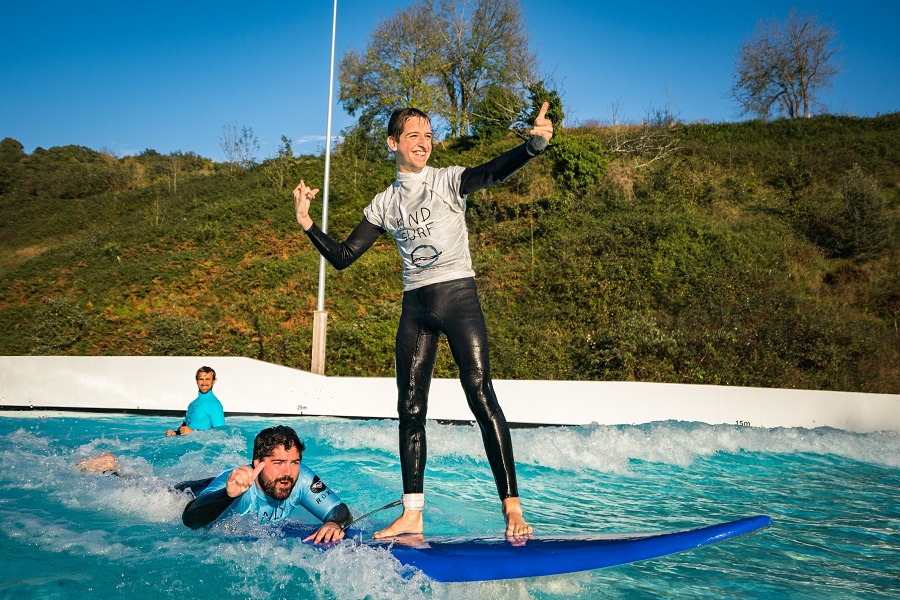
Pro surfers, like Aritz, have long known about the positive impact, both physical and mental, that surfing can provide. Since 2003, Bethany Hamilton has used her love for surfing to overcome many challenges, achieve some unimaginable goals, and inspire millions of people along the way. “I think we can all be unstoppable,” said Bethany. “I have faced an immense amount of challenges in my life. However, my passion for surfing, along with my family and faith, has driven me to overcome all obstacles”.
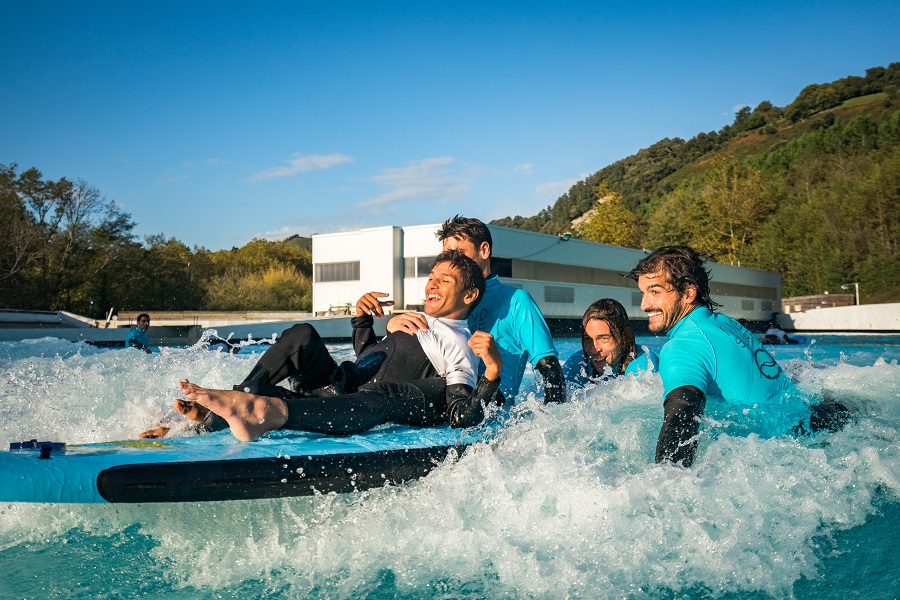
Over the past few decades, sports scientists have started researching water-based healthcare and the findings are positive. A leader in this field is the “International Surf Therapy Organization”, a global community of practitioners and researchers that collaborate to advance the use of surf therapy for healing. Their publications cover a wide range of topics including how surfing can improve the social skills of children with autism through to how surfing can help war veterans with post-traumatic stress disorder.
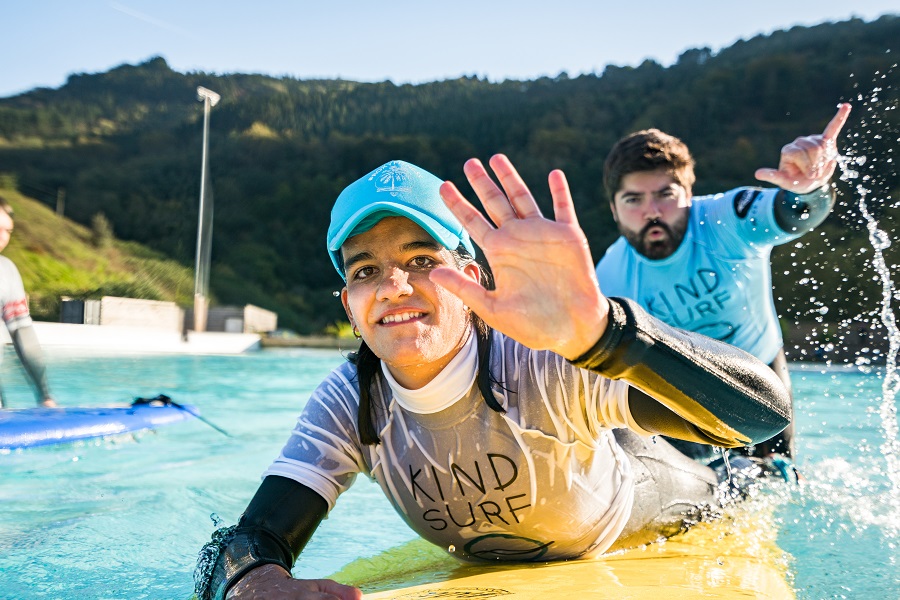
Similarly, John S Payne, mental health expert and author of What My Eyes Have Seen, agrees that there is a significant potential for healing in riding waves. “Surfing is a whole-body experience, the feeling of the water washing over your body, the mindfulness of sitting on your board looking for a potential wave. It brings you into the ‘now’, taking your thoughts away from anything else and adding to your quality of life”, said John.
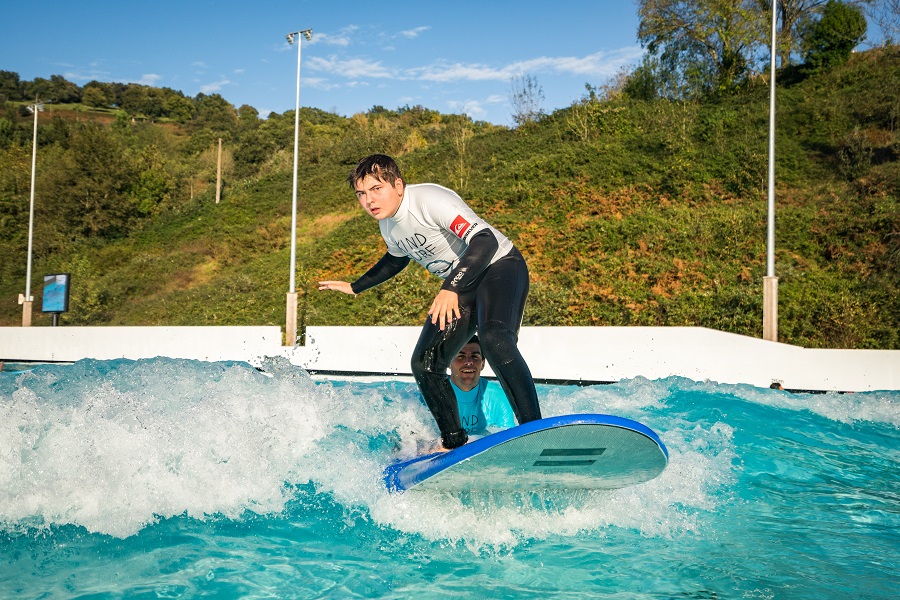
Anyone who has ever surfed will testify that it is a physical sport. Paddling, duck diving, standing-up and riding waves provide a solid aerobic cardiovascular workout, exercising all major muscle groups – shoulders, back, arms, butt, legs and core. After just a few sessions, surfers notice an increase in strength, endurance and energy.
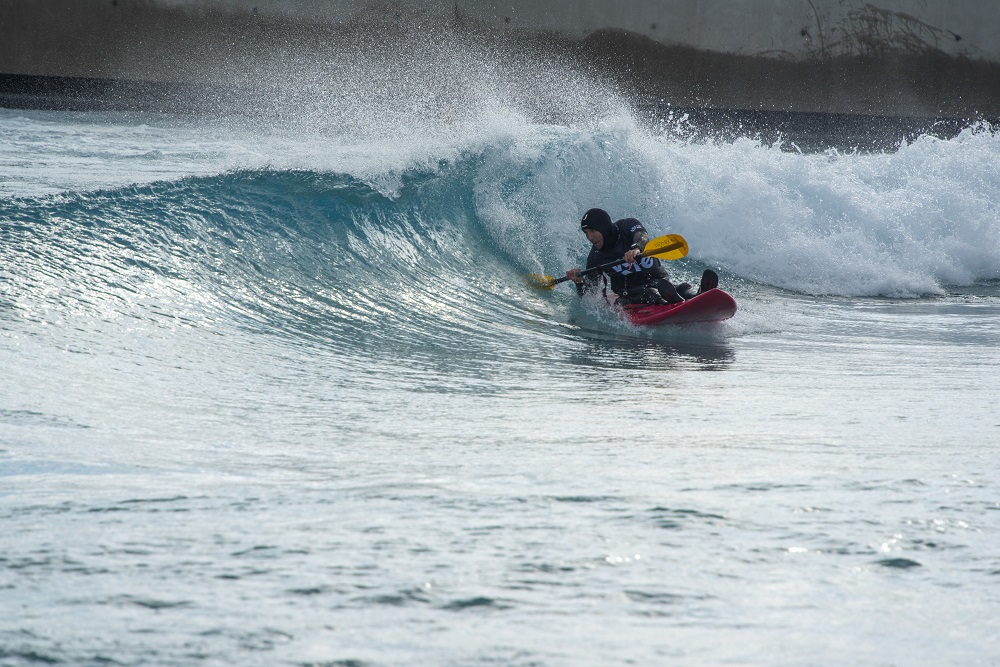
Over the years, Wavegarden’s engineers, architects and designers have worked tirelessly to ensure that every aspect of their technology is accessible and safe for all. Adaptive surfers like Aitor “Gallo” Francesena, who is blind, Iñigo Hermoso and Urtzi Urrutia with Down syndrome, and amputees Eric Dargent and Benoit Moreau have tested the surfing lagoon at Wavegarden’s headquarters and validate both the quality of the waves and the level of safety.
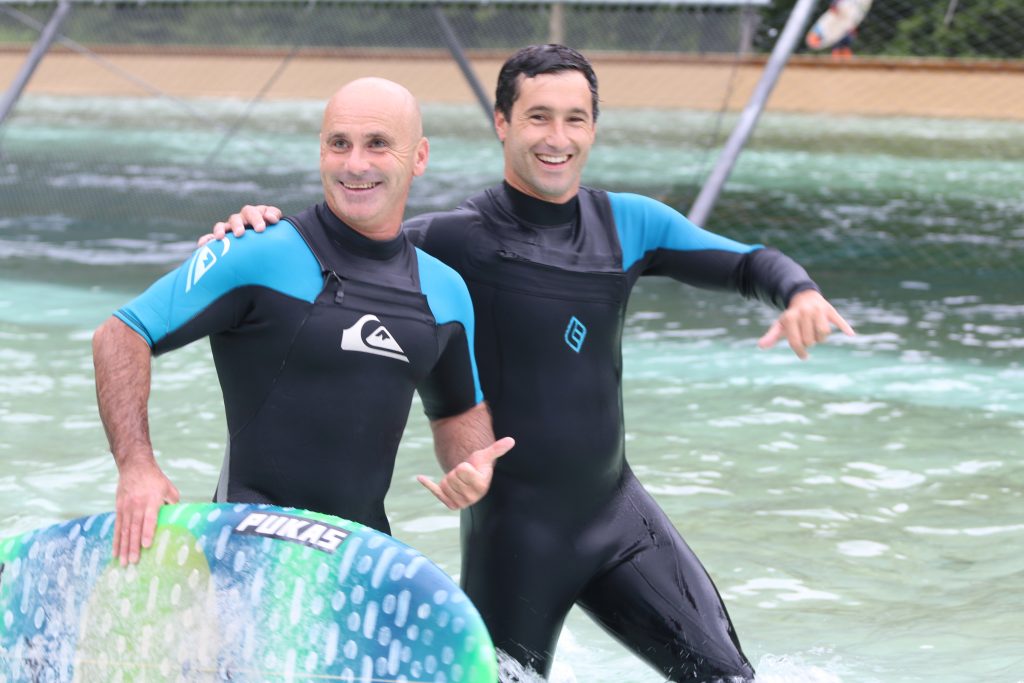
Beyond the Wavegarden’s private demo center, considerable progress is being made at the public Wavegarden facilities in the UK and Australia.
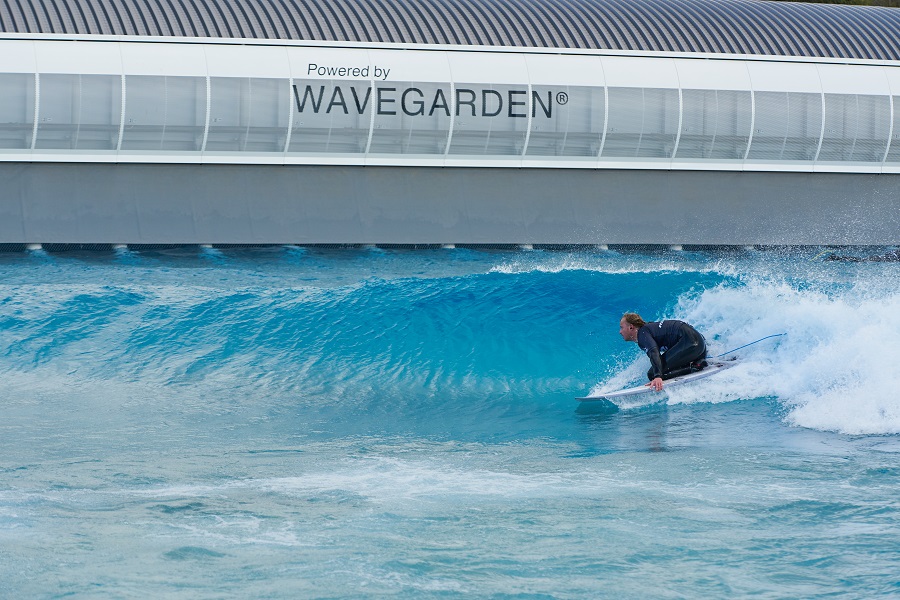
Opening last October, The Wave Bristol became the world’s first public Wavegarden Cove. Inclusion is a fundamental value of the organisation and founder Nick Hounsfield made sure that the plans catered for people with disabilities – from access through to amenities and tuition. Easy access ramps, dedicated changing rooms and fully trained coaches make it possible for everyone, regardless of ability or experience, to get in the water and ride waves.
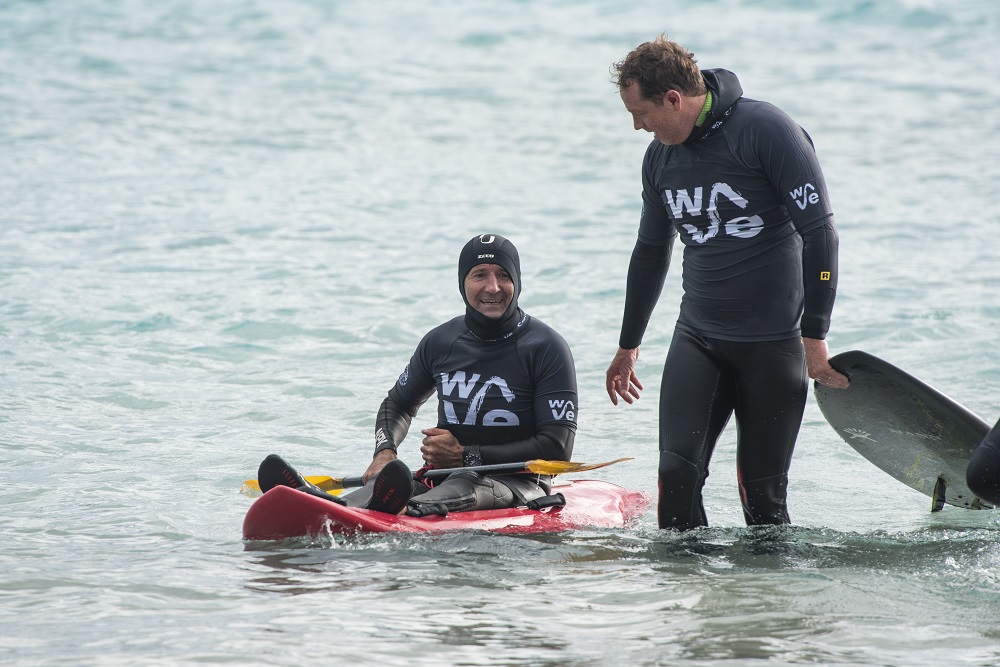
The slow moving knee-high waves in the Bays areas of the Wavegarden Cove have seen thousands of beginners catch their first rides, some of whom have been adaptive surfers. Louis Sutton, a 19-year-old who has autism, cerebral atrophy, cerebral palsy and dyspraxia, surfs the zone with bigger waves for experts with flare and style. The positive effects on Louis’ physical and mental state have been so profound that his physiotherapist now recommends surfing as part of his official treatment.
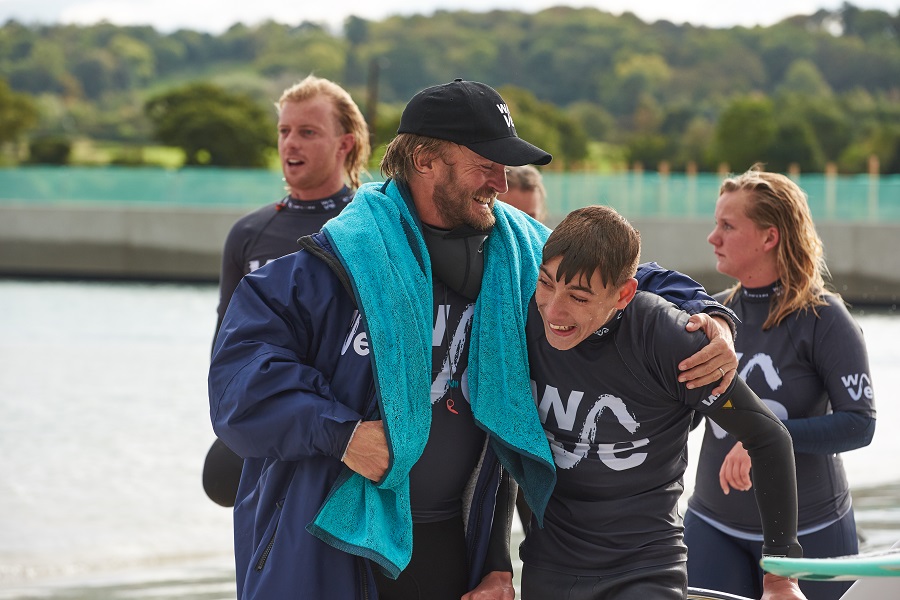
Hounsfield’s desire to see a venue which is accessible to all is paying off and come October 3 The Wave Bristol will showcase some highly inspirational athletes during the English Adaptive Surfing Open. However, this will not be the first adaptive surfing competition in a wave park. Back in 2019, the Welsh Adaptive Surf Championships bought together 24 surfers from 13 different countries at Adventure Parc Snowdonia in North Wales.
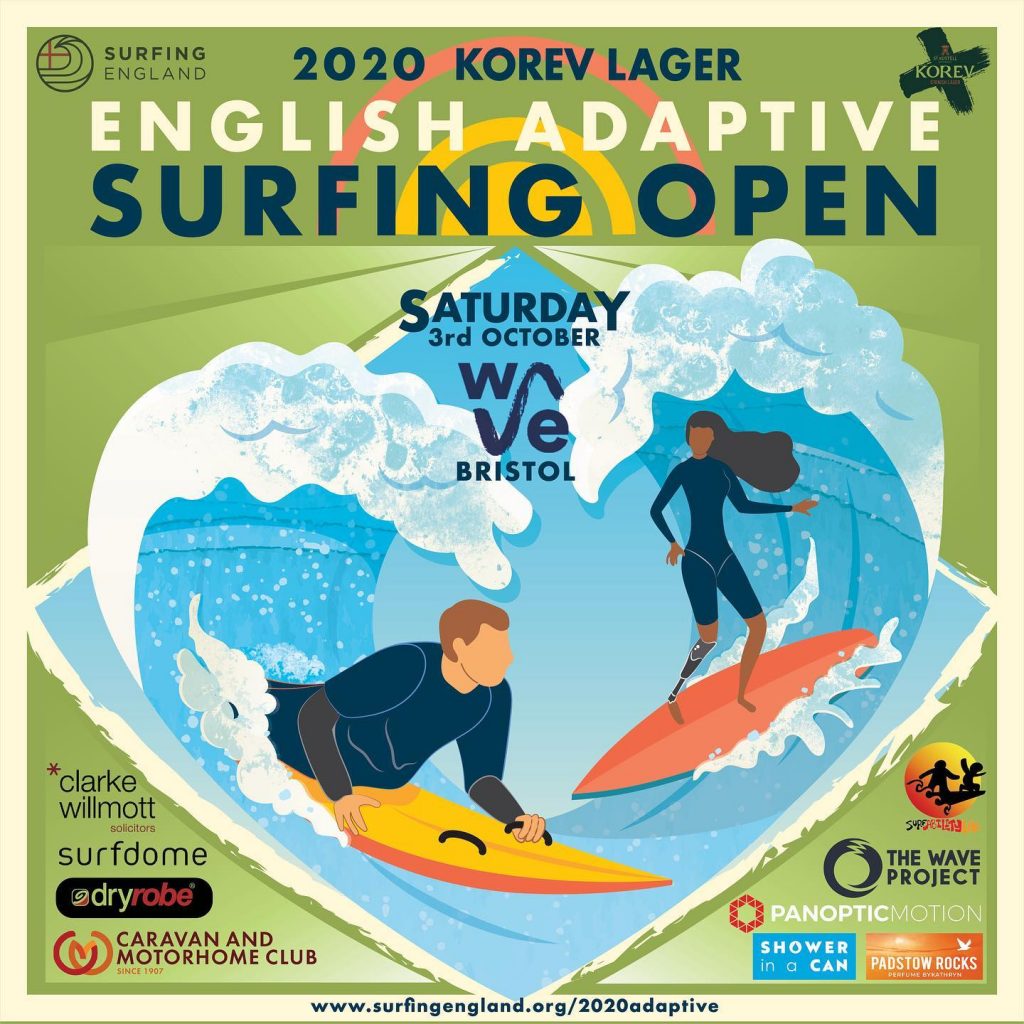
In the southern Hemisphere, Australia’s Ocean Heroes, a non-profit organization based in Perth, has organised surf sessions for over 3000 children with autism. The objective of Ocean Heroes is to share the thrill and wonder of surfing to enable them to build self-belief in a supportive and fun environment. One recent initiative involved riding waves at URBNSURF Melbourne, the second public Wavegarden Cove, which opened in January 2020.
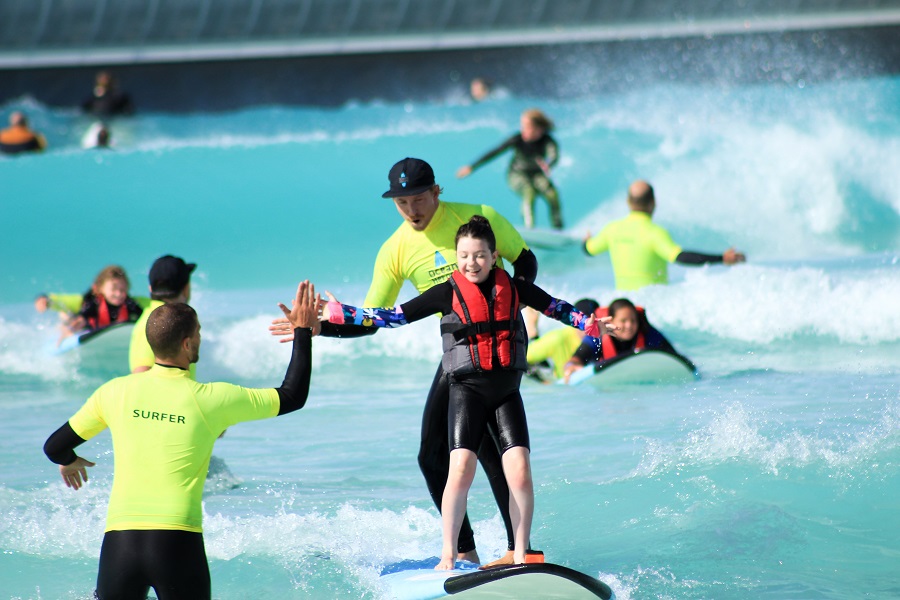
“There’s a demographic of our society that miss out on going surfing through no fault of their own, although they are physically capable to do so”, said Luke Hallam, co-founder of Ocean Heroes.
Julie Baker has three children with Autism that attended the session at URBNSURF. She finished the day with elated children and a strong appreciation for the controlled conditions and close supervision found in the Wavegarden Cove. “All of my children said it was much better than at the beach because of the clear water and predictable conditions. The environment helped settle their nerves and anxiety, it was truly a perfect session”.
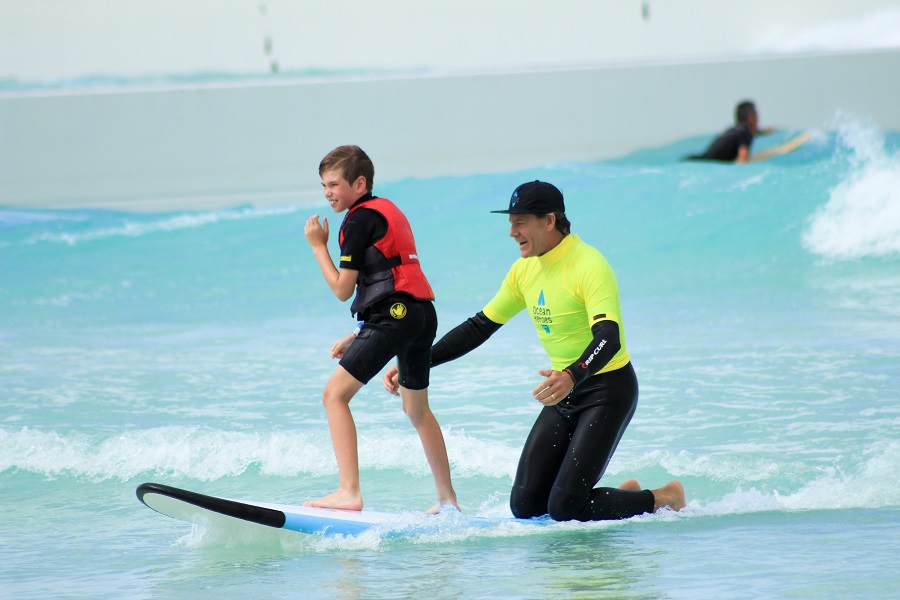
The experience made such a strong imprint that Julie wrote a message to Adam Lamond, one of several key organizers. “Thank you from the bottom of my heart, from a mother who is currently crying with joy in appreciation of a donation made by strangers that hugely impacts my gorgeous children”.
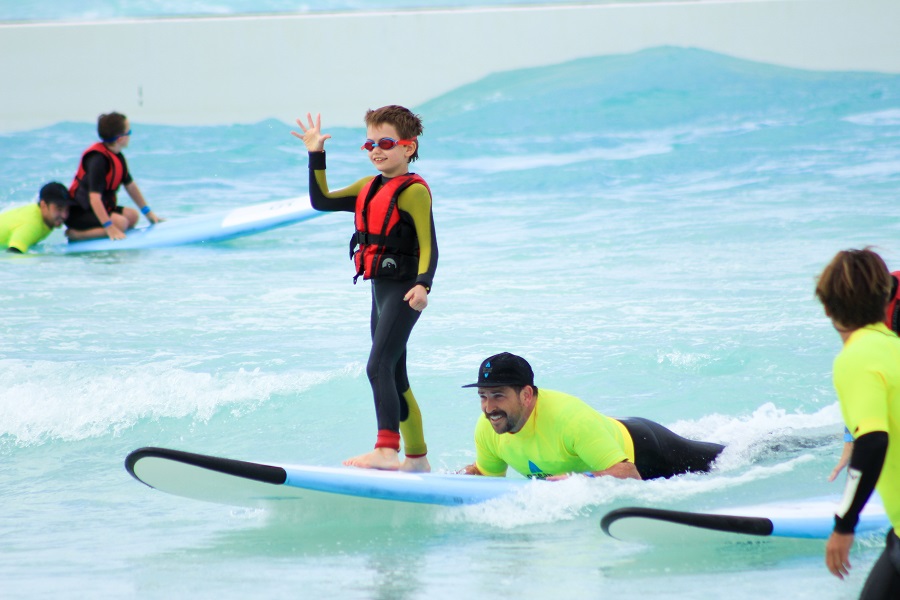
Some medical practitioners have been advocating the benefits of surfing
for years. Dr
Guillaume Barucq, based in the seaside town of Biarritz, France gained
mainstream media attention when he became the first GP in the world
to prescribe surfing as a treatment for certain chronic conditions. When he’s not insisting that his patients with
conditions like cystic fibrosis, depression, back pain, heart disease, diabetes, obesity, or cancer, hit the waves, the avant-garde doctor is
frequently seen in the lineup himself. According to Barucq, “Surfing helps you stay in shape,
stabilize your weight, and reduce stress”.
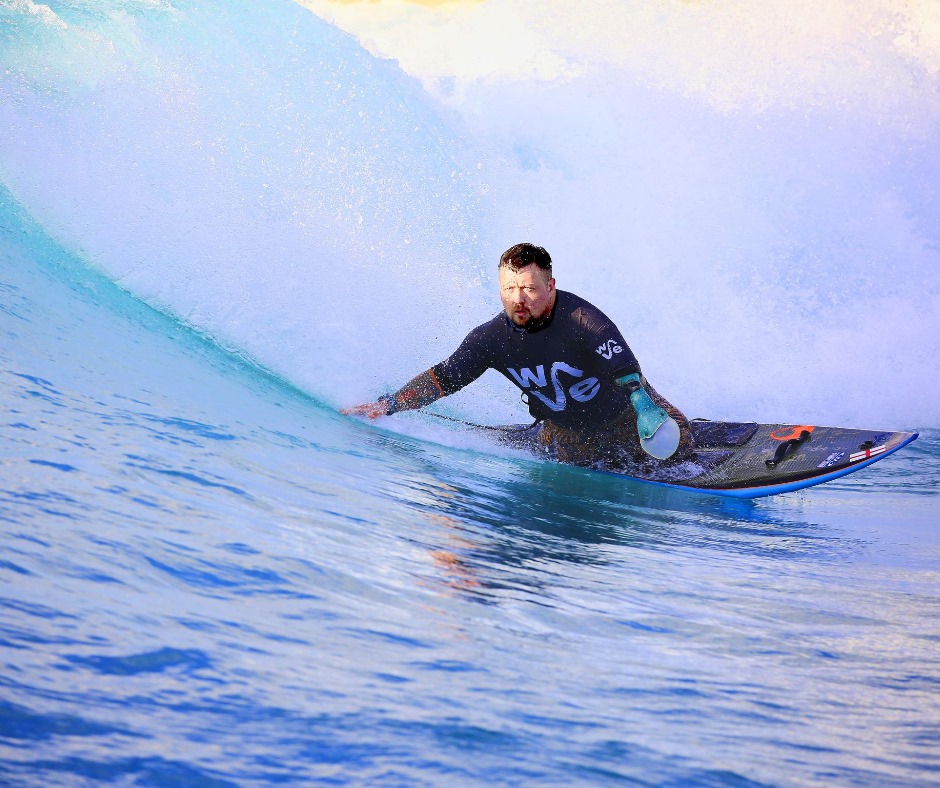
Back at Wavegarden’s headquarters, Josema Odriozola, Founder and CEO, is more than satisfied with the direction things are going. “I am proud of the work our team and our partners are doing to improve access for adaptive surfers. There are many organisations doing inspiring work in surf therapy and I am pleased to know that Wavegarden can play a key role in offering a safe and controlled environment for all surfers.“ In spite of dilemmas currently facing the world, the good news is that construction work on new Wavegarden facilities in South Korea, Switzerland and Brazil continues to progress and each will be fitted with the latest features for adaptive surfers, while offering great waves for surfers of all experience levels.